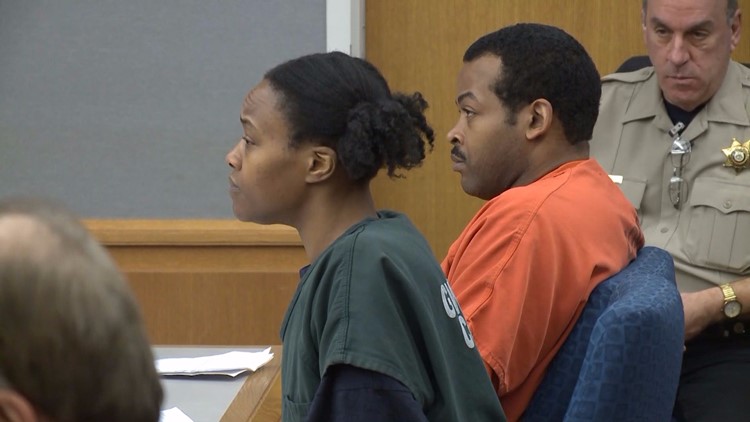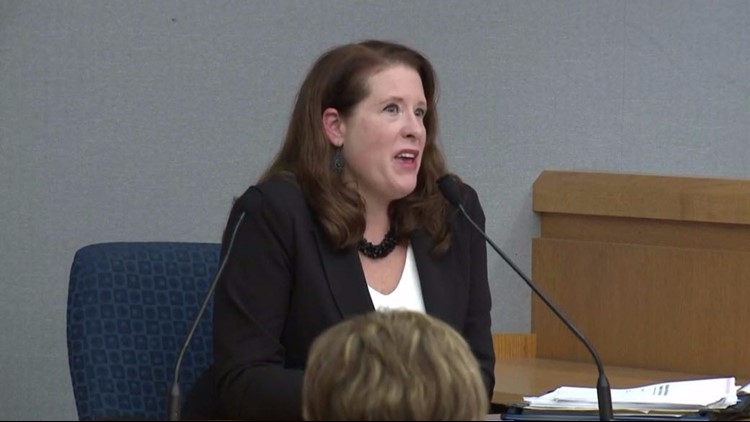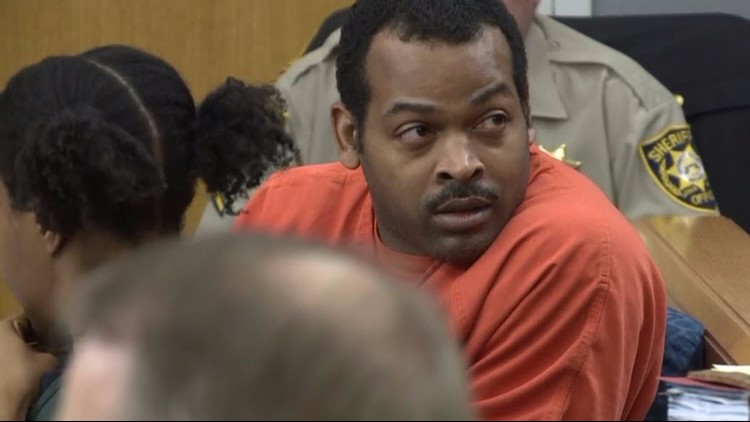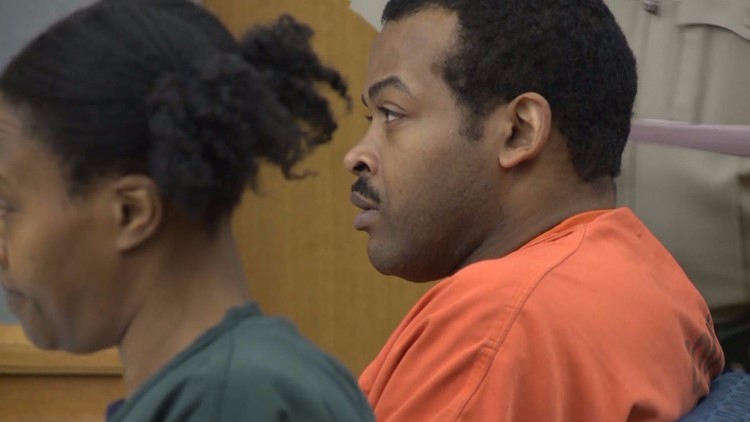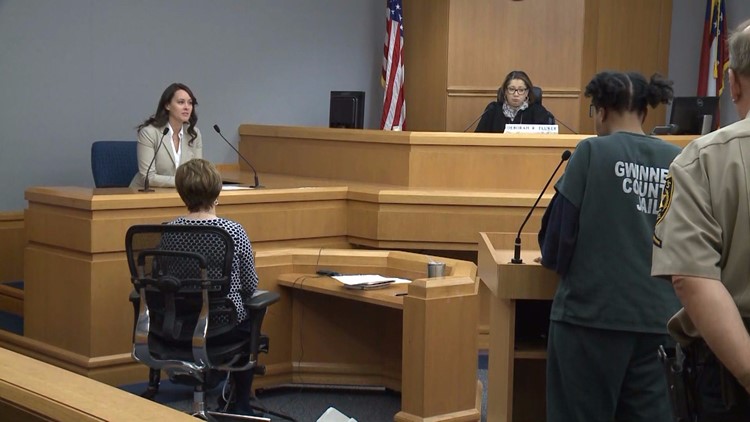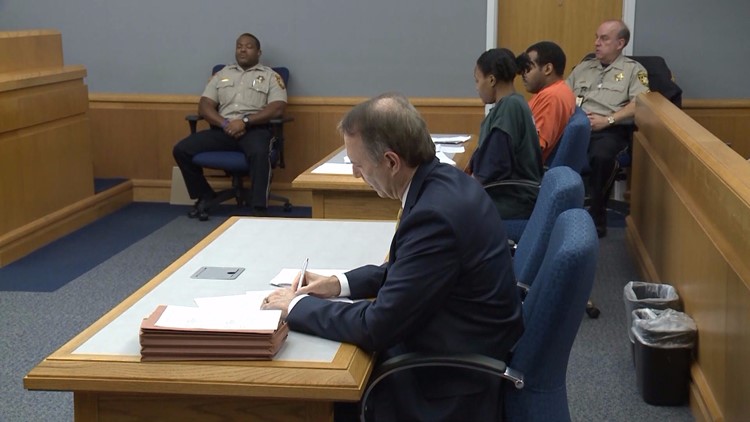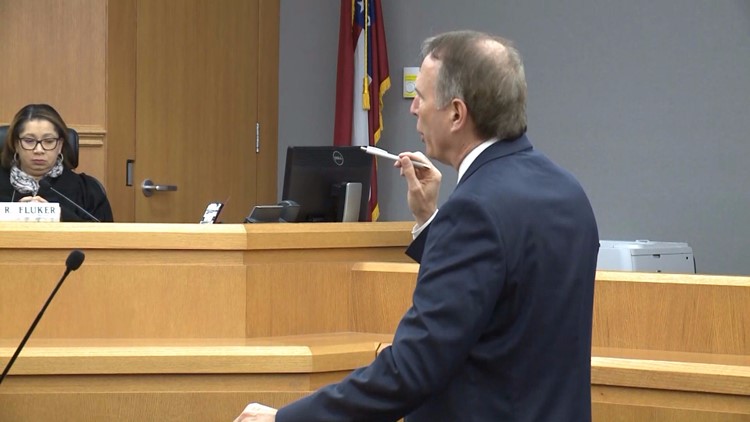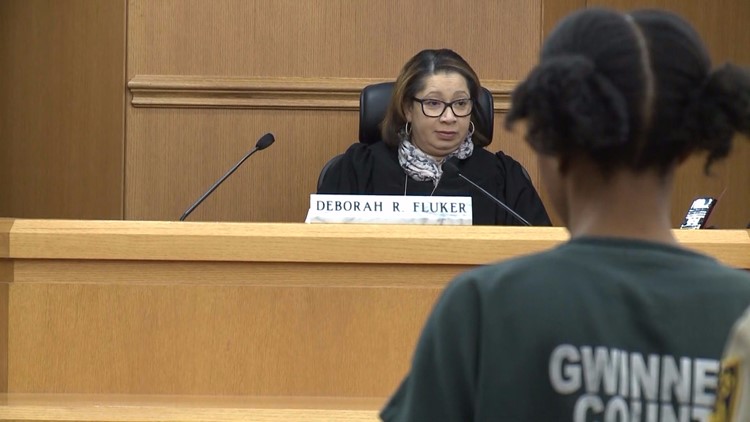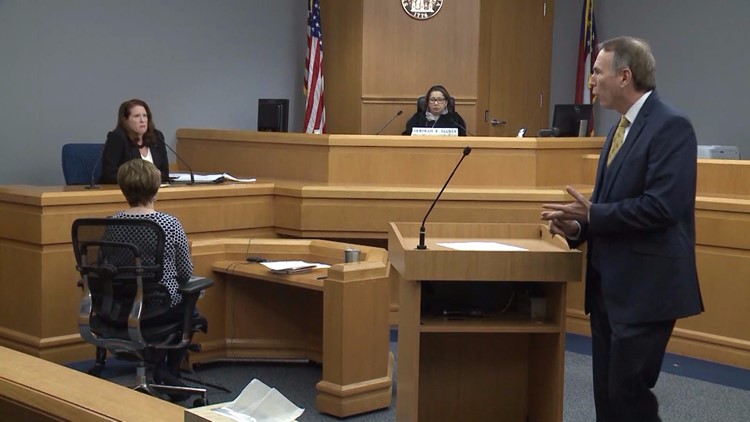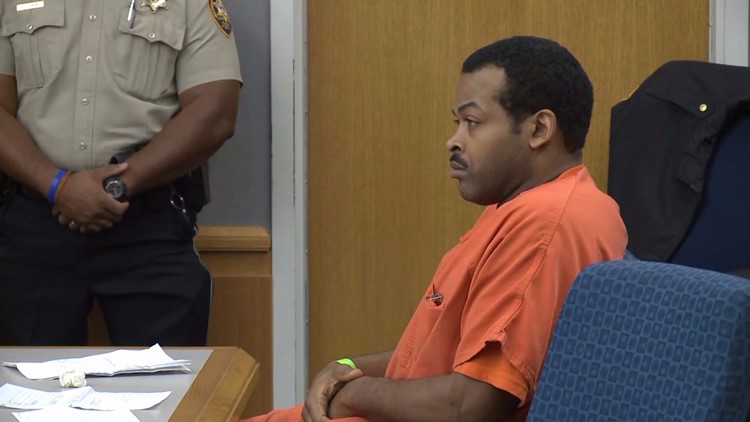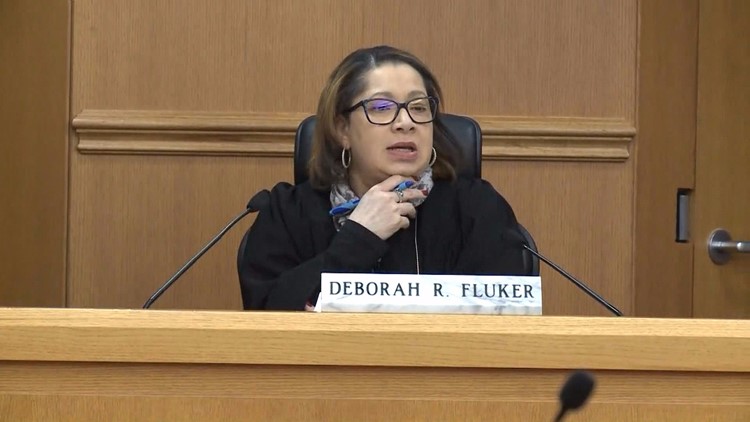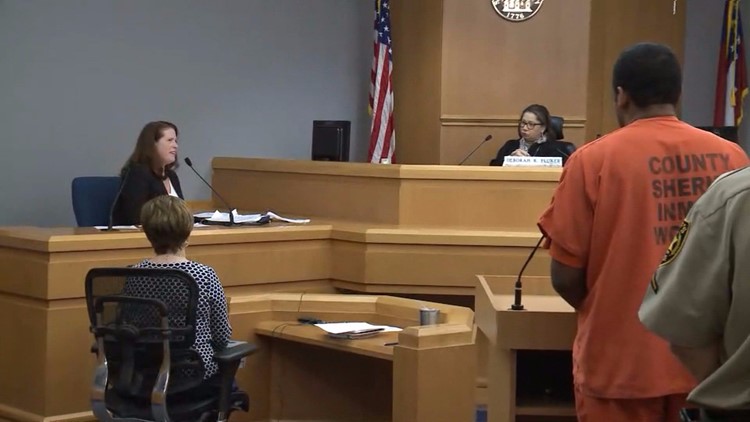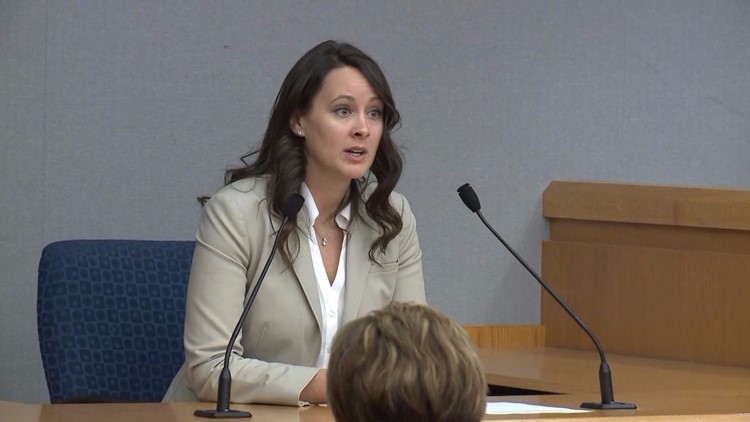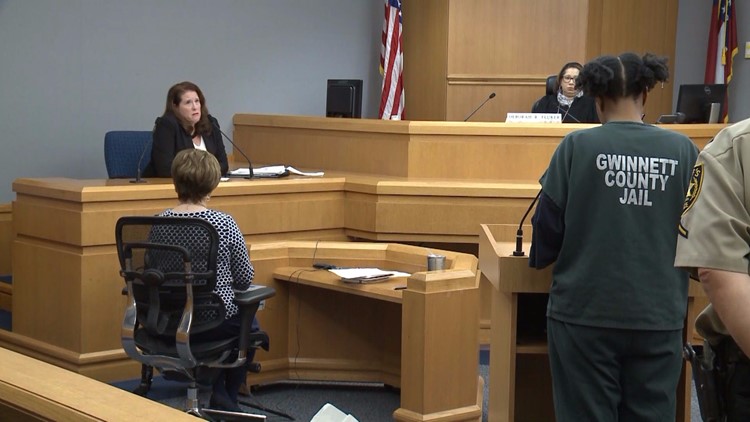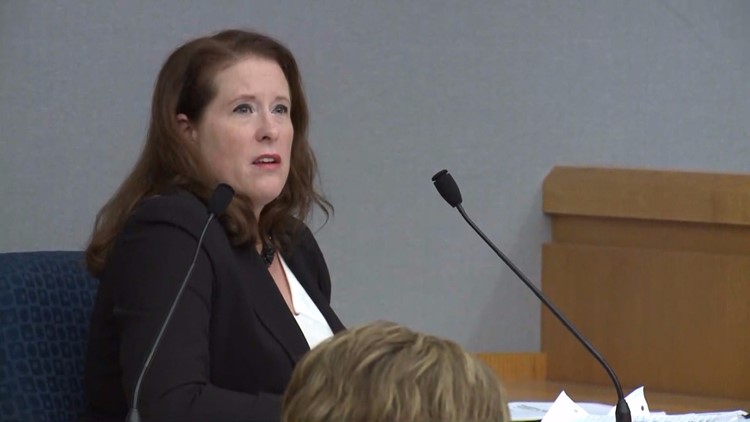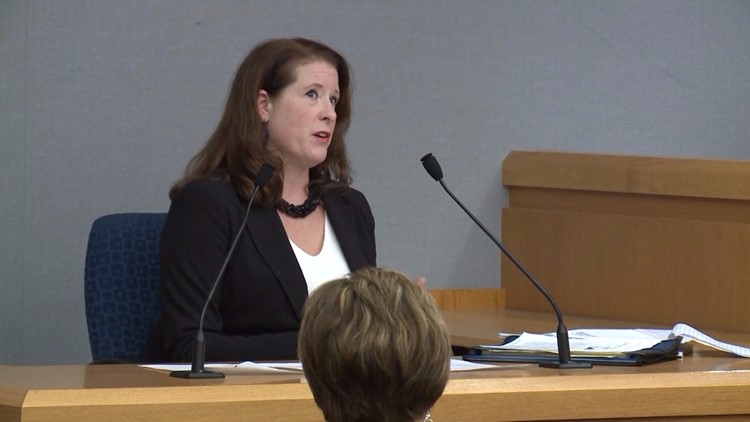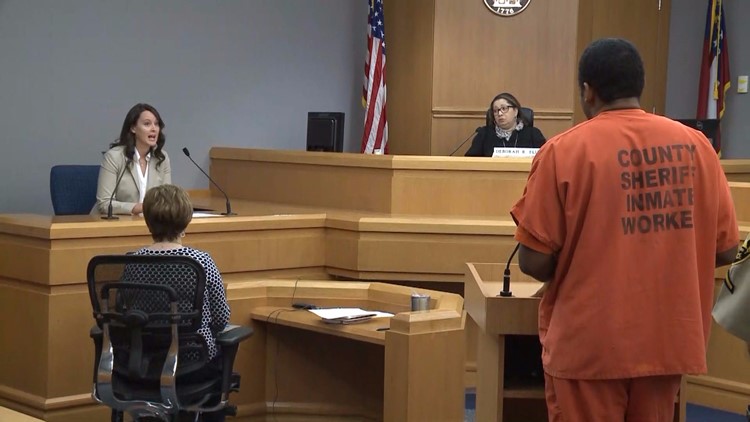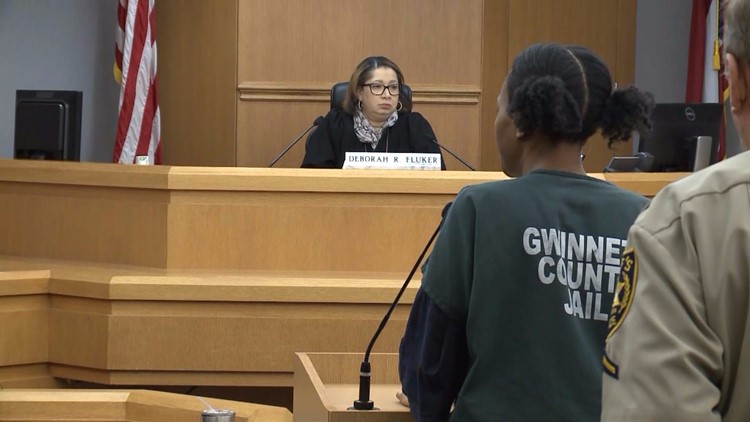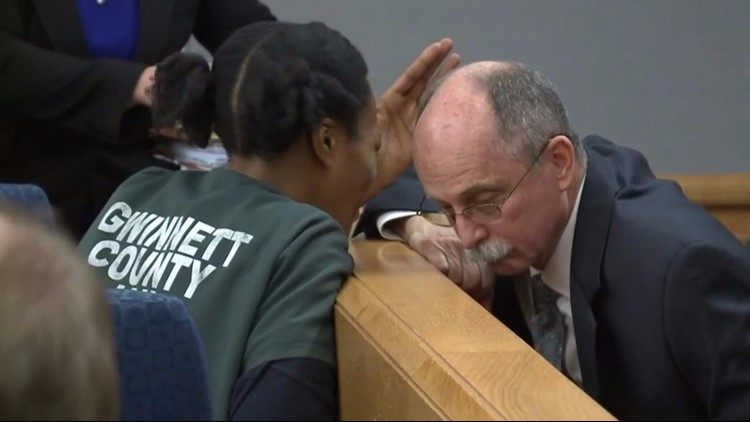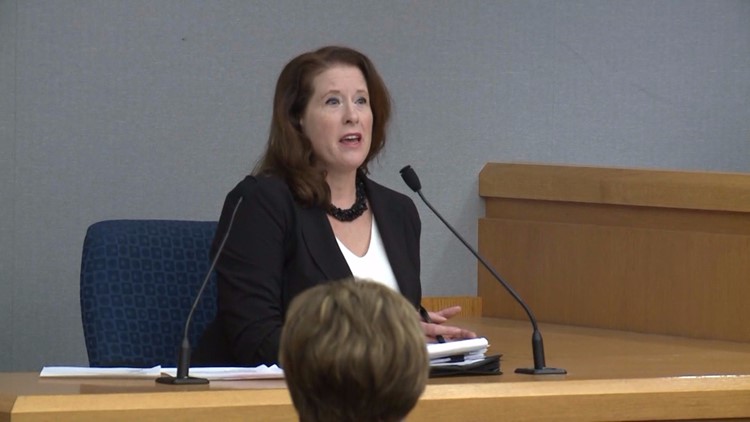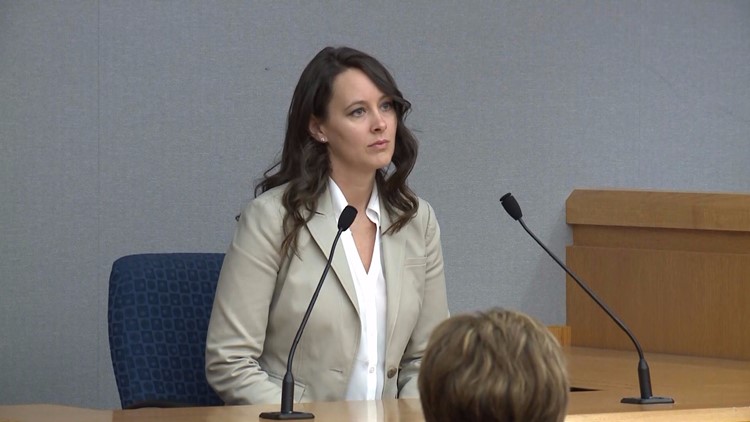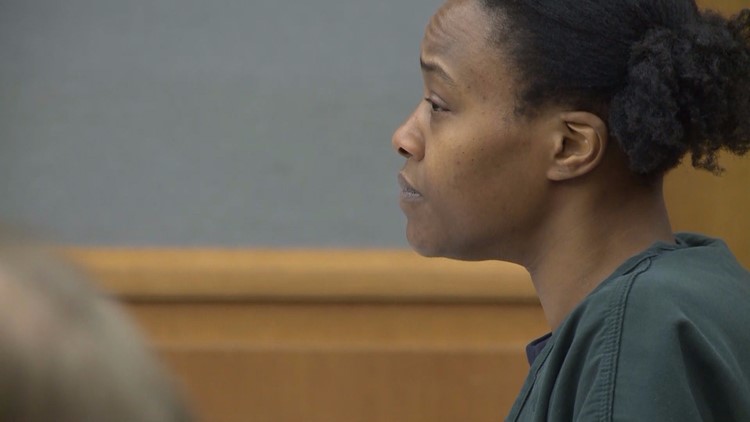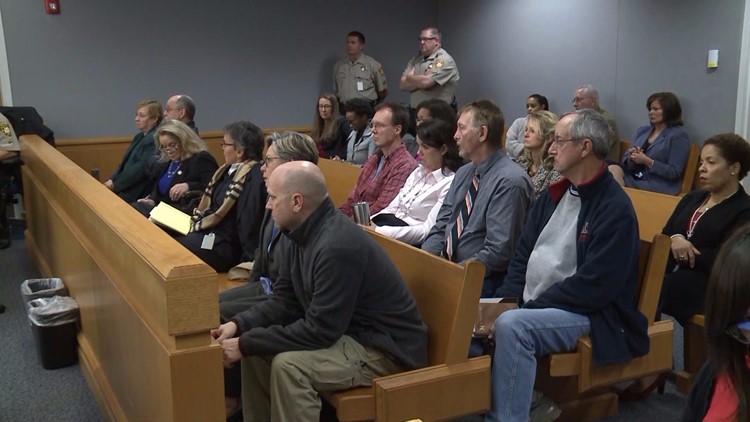Wimbush parents sentenced in child cruelty case
<p>Judge Deborah Fluker sentenced Therian and Recardo Wimbush to 30 years—20 years behind bars and 10 on probation—for child cruelty.</p> <div> </div>
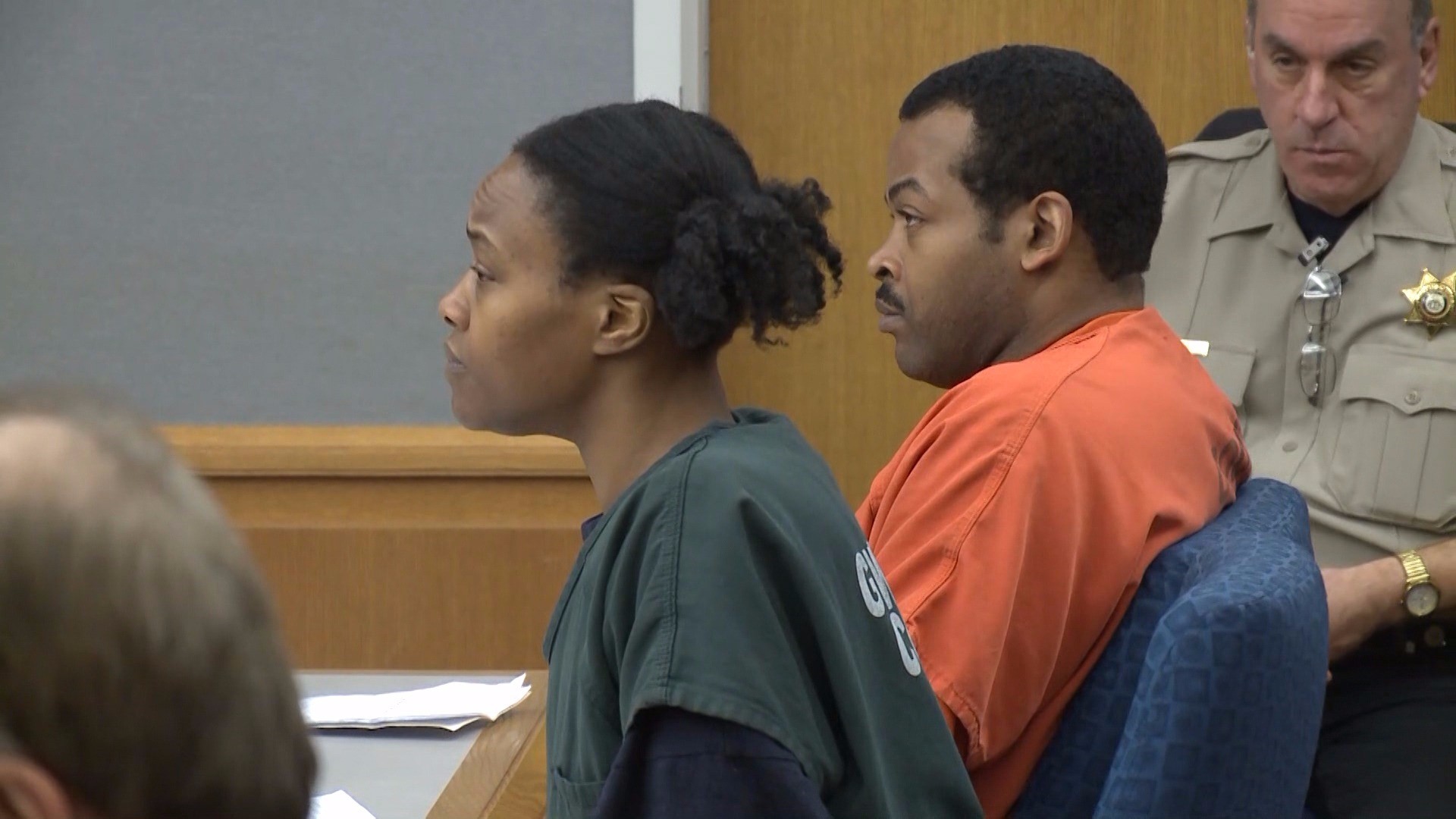
EDITOR'S NOTE: If you are viewing this in our app, click this link to see full story.
LAWRENCEVILLE, Ga. – A Gwinnett County couple convicted on child cruelty charges were sentenced on Monday.
Judge Deborah Fluker sentenced Therian and Recardo Wimbush to 30 years—20 years behind bars and 10 on probation.
Recardo, a former Georgia Tech football player, and his wife, Therian were accused of locking their oldest son, now 16, in a basement for two years in deplorable conditions and withholding medical treatment from another son, now 10 years old, with abdominal skin cancer.
The sentence was exactly what Gwinnett County Chief Assistant District Attorney Dan Mayfield recommended.
The most “startling” part of this case, “is the defendants’ position that they have done nothing wrong,” Mayfield said to the judge before she sentenced Recardo and Therian to 20 years in prison for child cruelty against two of their 10 children.
“Being a parent is the hardest job in the world. But it is also probably the job that carries the greatest responsibility in the world,” Fluker said to the Wimbushes. “There is not a parent in this room; there is not a parent in this world that is perfect. But as parents, we need to tread lightly with the responsibility that we have.”
What has been a key theme throughout the evidence in the trial in this case, she said, is what is reasonable and what is not reasonable.
“Being entrusted with that precious gift of being a parent, having life experience, financial resources, educational background that each of you have—that light bulb never came on for you as to where that line of reasonableness should have been drawn. And you far exceeded anything that could possibly be considered reasonable in your treatment,” Fluker said.
The sentence, she continued, is not a condemnation of their religious beliefs, or a statement for or against corporal punishment.
“It’s not a condemnation of how an individual or a particular parent chooses to discipline a child, so long as it is within the boundaries of the law,” Fluker told the parents.
A Gwinnett County jury found the Buford, Ga., couple guilty on some of the second-degree child cruelty charges against them, but not guilty on the first-degree offenses they faced.
It was a case that touched the jury—taking them a day and a half to decide.
“It was emotional for all of us. The pain that those children went through was more than any of us should have to go through. Those children are affected for the rest of their life, no matter what care comes now,” Bill Rice, the jury foreman, said Friday afternoon after the verdict was read.
The jury found Therian not guilty on counts: one, two, five and six; and found guilty on the lesser felony charges three, four and seven for failing to seek medical care for her son and for child cruelty in the second degree for “confining child in a room for months without sufficient mental stimulation and social interaction; and cruel and excessive physical pain by failing to provide physical exercise.
The jury found Recardo not guilty one, two, five and six; and, like Therian, was found guilty on three, four and seven.
Throughout the three-day trial, it was a question of right and wrong pertaining to capital punishment, religious freedom, abuse and parenting. When it came down to it, the jury had to decide whether or not there was malice.
“It was difficult, we were fighting most of the time between first and second degree. Half of us wanted to do first degree,” Rice said. “The word malice is a tough decision to make, so eventually we ended on second degree.”
The word malice, he continued, does not mean that they knew exactly what was going to happen. The word malice only meant that they knew what they were doing was wrong, and that there were going to be consequences, he explained.
“The fact that she took that light bulb out of the closet and left that boy in the dark, the fact that she put a pee jar in that room... told me that she was not going to be in there for another day or week, that this was going to be the routine for a very long time,” Rice said regarding the jury’s consideration when deciding the parents’ guilt.
In less than a week, the jury was selected, opening statements and testimony were heard and closing arguments closed out the trial, with the two defendants who represented themselves.
Police charged the couple after discovering their then-13-year-old son had been imprisoned in their Buford, Ga., home—after DFCS received an anonymous tip on June 15, 2014.
Case workers went to the home and found the teenager confined to a small room that was locked from the outside. Inside the room was a box spring, mattress and a large plastic jar, which was used a toilet.
According to witness testimony, the teen had not showered and his nails were long and jagged. He had a rash and was Vitamin D deficient.
PHOTOS | Wimbush parents sentenced to 30 years
He and his nine younger siblings were placed in DFCS' care and are living with relatives in Florida and Georgia.
Police said the parents—who were arrested in 2005 on simple battery charges, according to Gwinnett County Jail records—complained the boy had tried repeatedly to run away from home.
Recardo played football at Georgia Tech from 1999-2002. He signed with the Atlanta Falcons as a free agent in 2003, and played in the pre-season.

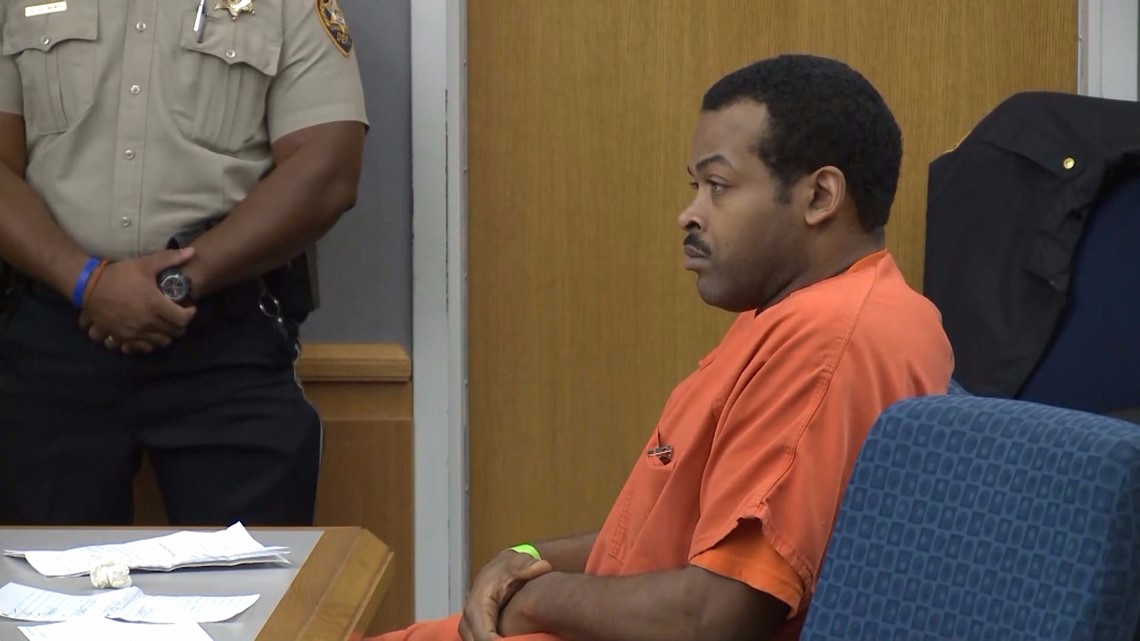
The jury consisted of eight women and six men and two alternates; eight Caucasians, five African Americans and one Indian. Their ages range from 20 to approximately 70.
They spent just over four hours deliberating on Thursday before breaking for the night and resumed Friday morning. They came to Fluker, asking if they had to agree on all the charges. The judge instructed them to re-read the charges instructions and return to deliberations.
“I felt like they knew there was going to be some kind of consequence for locking that boy in the closet for 18 months,” Rice said.
Recardo, who was donning orange pants and short-sleeved jail outfit with the words: County Sheriff Inmate Worker in bold on his back, on Monday morning, said that he worries that his 3-year-old will be too young to understand and will be without them for the next 15 years.
“I don’t agree with the jury’s verdict but I accept it,” he told the judge, pleading that he get to see his children and promising he’d do whatever it takes to be reunited with them. “I love each and every one of my children.”
“I took pride in being a father. I want to be the father my children deserve.” he said. “They’re phenomenal… They’re the most well-mannered, kind, polite children you’ll ever meet.”
A few jury members were present in the courtroom to watch the sentencing and testimony from two witnesses. One for the State and the other for the defense.
Attorney Leeann Chancey, guardian ad litem for the 10- and 16-year-old Wimbush children, and who also testified for the prosecution during the trial, returned to the courtroom on behalf of her clients.

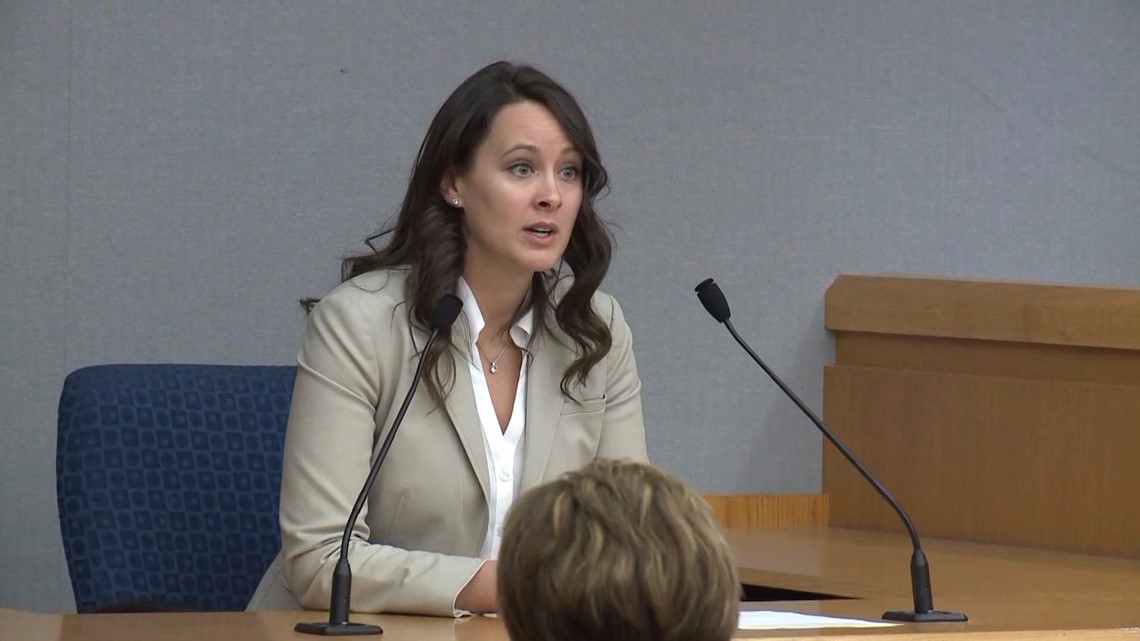
All 10 of them want contact with their parents, Chancey told the court about conversations she has had with the children. It’s a consistency that they’ve had throughout the last few years.
However, she said, in her opinion, contact between the children and their parents, would not be in their best interest.
“[Contact] could negatively impact their mental health,” she said. They could intentionally act out, she continued, in some misguided hope that they can get back to their parents.
If placed in a permanent home, gives them a “sense of permanency” and gain a sense of family unit, she urged the court.
“My recommendation is no contact until the age of 18 and upon initiation by child,” she said citing that the couple has been convicted of felony charges of cruelty to children. “No re-unification, would be in the best interest of the children.”
Therian argued that Chancey was not a mental health expert.
“My recommendation comes from mental health experts… and from speaking to your children,” Chancey rebutted the mother.
Darice Good, who has been the direct attorney for the other eight Wimbush children in juvenile court since June 2014, said that she looked over the totality of the children’s lives, not just one instance.

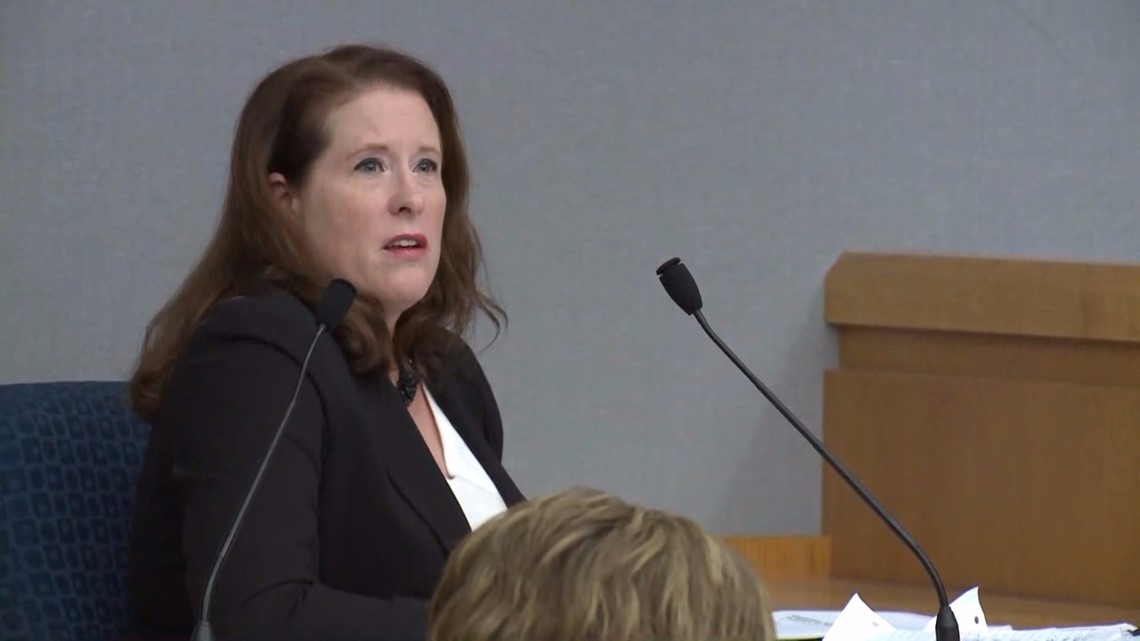
“I am their voice. They are the most important people, who are not in this room,” she said to the court.
In 16 years of experience, she said, “I don’t ever think there are situations where they should absolutely not have contact with their parents.”
Separation, she continued, is just as traumatic than anything they might have done.
“They all want contact with their parents,” she said on the children’s behalf. “They told me, ‘We feel that no one is considering what we’re going through.’”
Furthermore, she said, the children believe what their parents did was wrong.
They told her, she said, ‘Our parents did what was best for us, even though it was wrong… no one is perfect.’
“They do love their parents,” she said. “I’m not here to be a cheerleader for [defendants]; I’m here to be a cheerleader for my eight clients.”
Before the judge handed down her sentencing, Therian pleaded her case once more in front of the court. Wearing her green Gwinnett County Jail outfit and donning pigtails, she told the judge that she has questioned whether or not she is a complete failure as a wife and mother.
But, she said, she remembers, “A bad tree cannot produce good fruit.”
“My husband and my children are my world,” she said. “This should fall on my shoulders.”

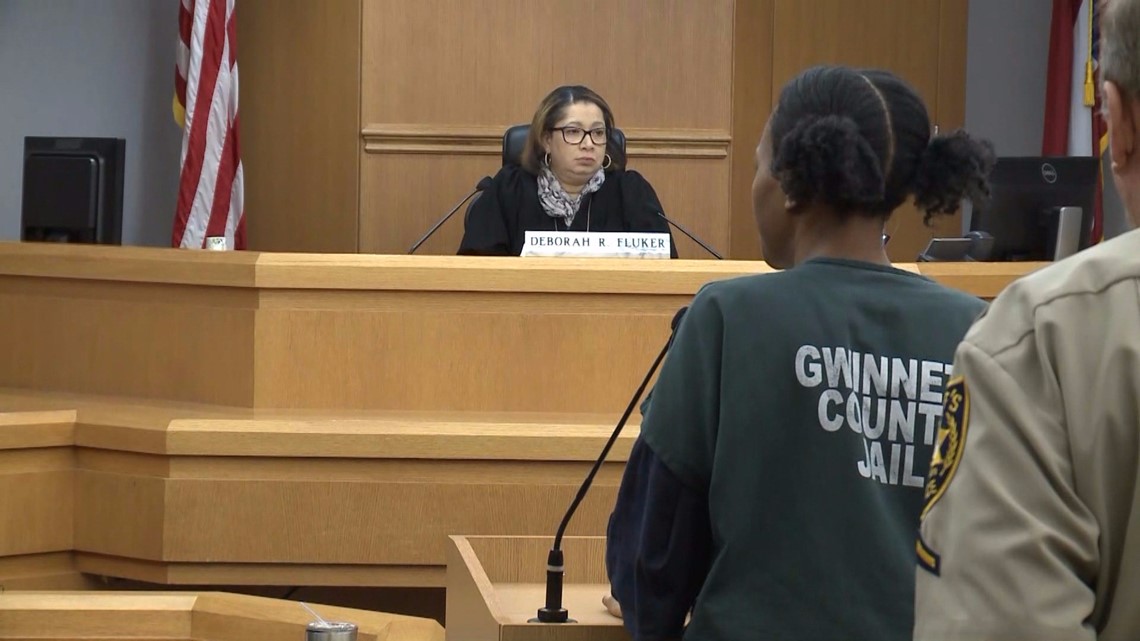
He stood at the gate of possibilities, the mother explained about her son and getting into trouble.
“I needed him to sit down and think… who he desired to be and the path he desired to travel,” she said, fearful that he would go down the “prison pipeline” path like two of his uncles, the way he was headed.
“The need to be saved was monumental,” she pleaded.
Her now-16-year-old son wrote her a letter, she said, in which he said, “He now understood the value of righteousness.”
“I have to tell you, this 31 months without being able to see, to talk to, or even to write these little people—my students, my children, my world, that I labored for up to 49 hours, that I’ve been cut open for and I’ve nursed for up to two years and two months, who spent every waking hour of every waking day, that I’ve spent with them since their conception—these have been the hardest days of my life.”
Therian continued to plead her case, telling the judge that she wants to take them home and “Love them, hug them, kiss them, raise them, teach them, train them, educate them, appreciate them, correct them and hold them, even protect them…” and tell them it’s all mama’s fault—not even daddy’s fault, all mama’s fault.”
“My future is very bleak without them.”
In parenting, she admitted, you can try your hardest to do everything right, that you can still error—and such a grave error. Knowing, however, that her son is walking on a better path of life, means the world to her.
“Have I been a perfect mother? No. Have I been a perfect wife, even? No. But I work hard, each and every day to grow, love and change in this life.”
Since she is a first-time offender, she asked the judge to take that under consideration, and asked that counts 3 and 4 be merged, grant time served, and serve concurrently and on probation, so that she “can get home and start putting our life back together.”
Furthermore, the mother admitted to the court that they were negligent, not malicious.
“I wish we would’ve things differently,” she said.
The judge, however, is not moved and reminded the parents that they segregated their child as punishment for two years.
“I cannot imagine, in a house of 10 siblings, who were otherwise close and accustomed to sharing a room together and having fun and reading and playing and building LEGOS and knitting, what that could have felt like. ‘What did I do that was so wrong, that I needed to be singled out and be treated so differently from all of my siblings, in the presence of all my siblings.’”
“In life, we all have choices, decisions and consequences. And you had choices,” Fluker scolded.
He was “confined in basement, denied hygiene, interaction with his siblings, opportunity to learn that ‘I’ve made a mistake but it’s not a condemnation on me for the rest for rest of my life. I should be able to apologize to my parents for breaking the house rules and be treated equally as all the other siblings in that house.’ And you didn’t give him that opportunity as a child.”
“You had those choices. You made the decision as parents, whether it was for religious beliefs, for a disciplinary reason, for whatever reasons—but it far exceeded any bounds of reasonableness. And so now, there are consequences for those actions,” she said.
It was heartbreaking to see the children testify, she said, but she saw, in some aspects that they were amazing children. But they are also resilient and adaptable, she said, just like teenage son was adaptable to his conditions of confinement.
“That’s even more heartbreaking in this case, because your oldest child adapted to those unreasonable, inhuman and unlawful circumstances that were imposed on him,” the judge said.

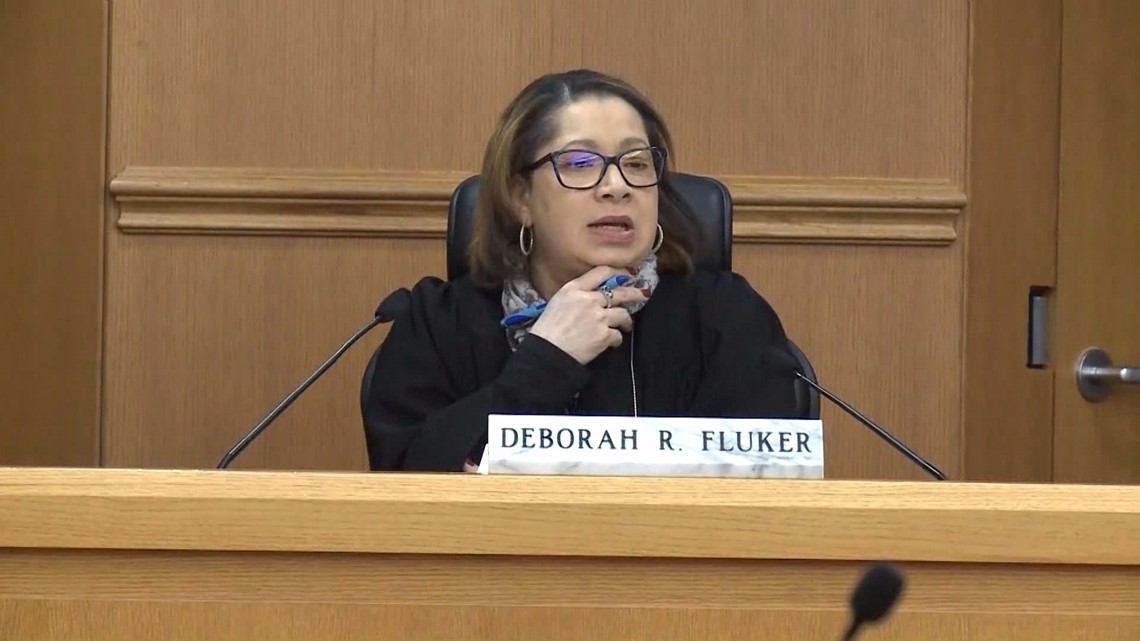
“Children have a gift that is an uncanny gift for unconditional love and forgiveness. Yet you, as a worldly adult… came to the decision that your child did not deserve forgiveness for taking food, a book, a DVD player—for that, he no longer deserved to be forgiven by his parents. That is incomprehensible,” Fluker said.
On count 3, she remanded both parents to 10 years behind bars. On count 4, she gave them 10 years of probation and on count 7, she gave them 10 years to serve consecutively with the other 10 to be served. She also fined them each $1,500 and court costs, as well as 150 hours of community service, which may not include any children under 18.
She denied unsupervised contact with her eight children, who were not named in the felony case against them, until they are 18 years old. The children must initiate contact at that time.
The judge continued with their punishment, dictating that they could have no contact with the two named minor children, until they are 21 years old, and that contact must be initiated by those children.
“I am thankful, that hopefully, there is a light for your children after these circumstances,” the judge reprimanded the parents.
Both, Recardo and Therian will have 30 days to appeal their conviction. Recardo requested a court-appointed attorney and Therian said she will opt to represent herself again.
11Alive is not naming the Wimbush children because they are considered victims in this case.


